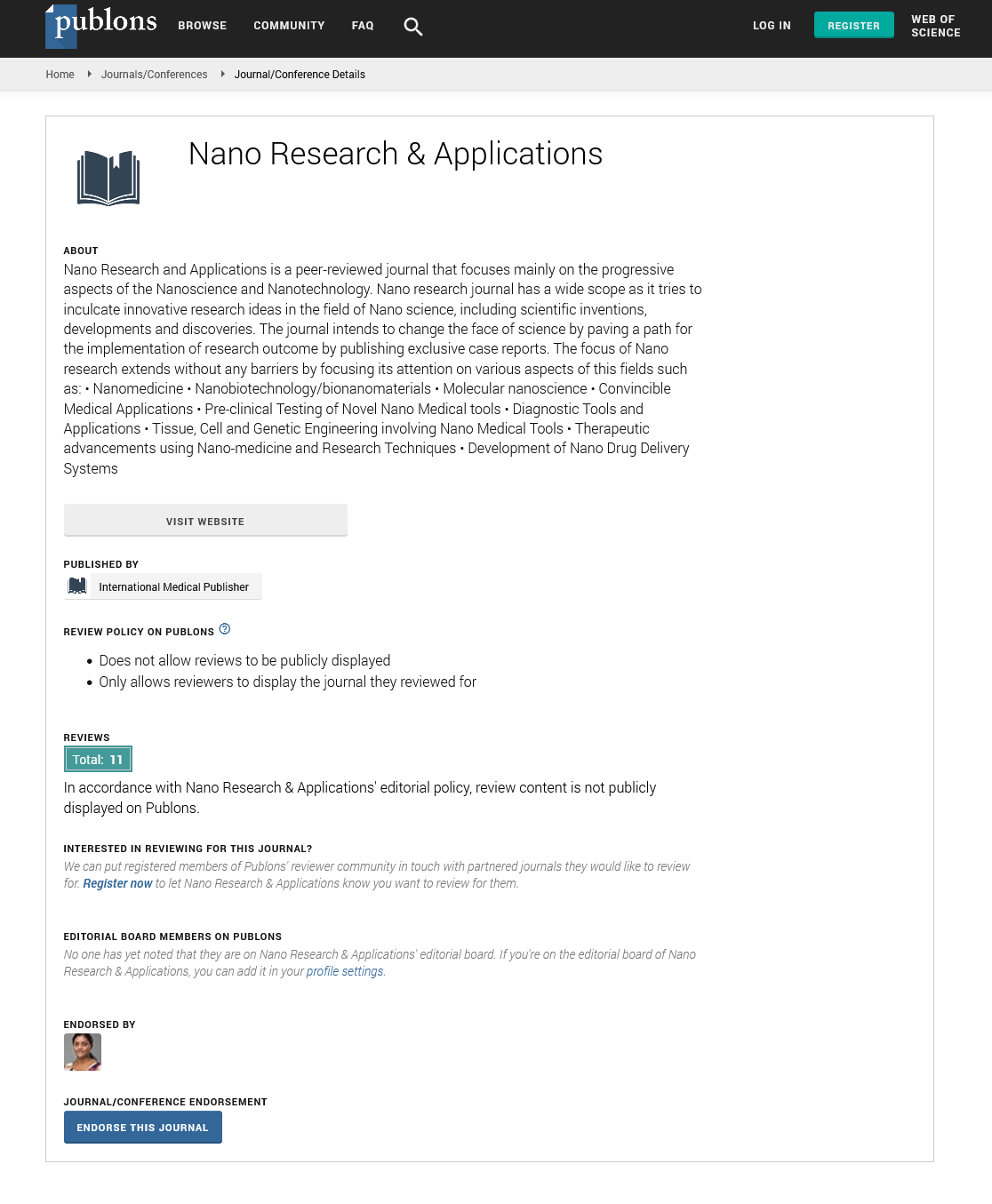ISSN : 2471-9838
Nano Research & Applications
Preparation of 3D graphene with microwave-hydrothernal assistance for ultrahigh performance of capacitive deionization
World Congress on Materials Science & Engineering
August 23-25, 2018 Amsterdam, Netherlands
Wahid Dianbudiyanto and Shou-Heng Liu
National Cheng Kung University, Taiwan
Posters & Accepted Abstracts: Nano Res Appl
DOI: 10.21767/2471-9838-C4-018
Abstract
Capacitive deionization (CDI) is a prospective desalination technology, which can be operated at low voltage, low temperature and potentially consume low energy for brackish water desalination. To obtain the optimal electrosorption, an electrode should possess high electrical conductivity, large surface area, good wettability, highly mesoporous structure which provide efficient pathways for ion distribution. In this study, a 3D structure graphene was fabricated using hydrothermal method which is assisted with microwave treatments to form 3D rGO (Gr-Mw-Hyd). Physical characterizations such as SEM, TEM, Raman, FTIR, XPS, XRD, and BET have been used to study the physicochemical properties of the samples. Among them, the Gr-Mw- Hyd samples have excellent specific capacitance (189.2 F/g) and ultrahigh electrosorption capacity (28.5 mg/g) for the desalination of ca. 500 mg/L NaCl. This may be attributed to the fact that Gr-Mw-Hyd samples have lower resistance and higher conductivity than other samples which are fabricated by only using hydrothermal method without microwave assistance (Gr-Hyd) and traditional reflux method (Gr-Reflux). Therefore, the prepared Gr-Mw-Hyd samples may be one of promising electrode for CDI in the practical applications.
Biography
Shou-Heng Liu currently is an Associate Professor in Department of Environmental Engineering, National Cheng Kung University, Taiwan. He is the Associate Director of Sustainable Environment Research Center in Taiwan. He has published more than 65 papers in reputed journals.
E-mail: shliu@mail.ncku.edu.tw
Google Scholar citation report
Citations : 387
Nano Research & Applications received 387 citations as per Google Scholar report
Nano Research & Applications peer review process verified at publons
Abstracted/Indexed in
- Google Scholar
- China National Knowledge Infrastructure (CNKI)
- Directory of Research Journal Indexing (DRJI)
- WorldCat
- Publons
- Secret Search Engine Labs
- Euro Pub
Open Access Journals
- Aquaculture & Veterinary Science
- Chemistry & Chemical Sciences
- Clinical Sciences
- Engineering
- General Science
- Genetics & Molecular Biology
- Health Care & Nursing
- Immunology & Microbiology
- Materials Science
- Mathematics & Physics
- Medical Sciences
- Neurology & Psychiatry
- Oncology & Cancer Science
- Pharmaceutical Sciences
